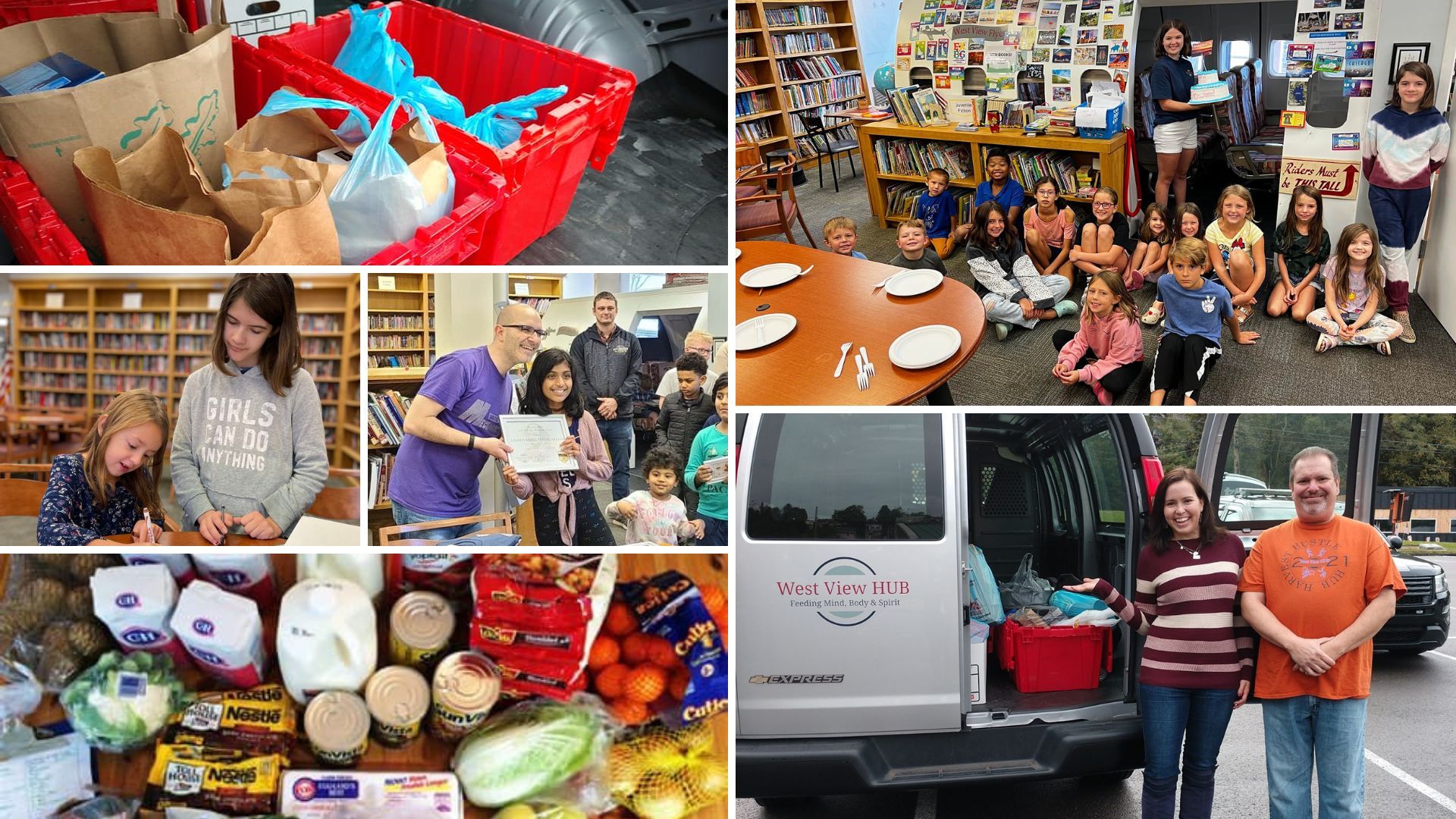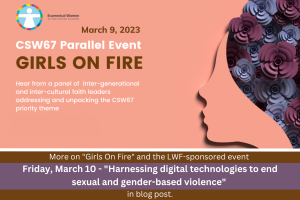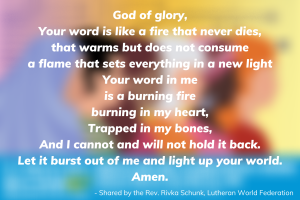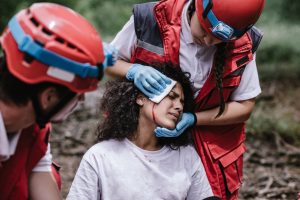Session 3 — Psalm 95
“For the Lord is a great God, and a great King above all gods.” —Psalm 95:3
Let’s get this out of the way: Psalm 95 is a weird psalm. It’s so odd, in fact, that choosing a single verse to use as an epigram for this session was difficult. Yet even from its most perplexing language we might still be able to glean insights that help us better understand the work of God in the world.
In The Social Visions of the Hebrew Bible: A Theological Introduction (Louisville: Westminster John Knox, 2000), J. David Pleins describes how many of the psalms, including Psalm 95, appear to have been used as parts of liturgy during worship and festivals. This psalm, in particular, appears to be the first in a series (95-99) grouped together as “psalms of God as king.” Each offers lofty praise of God, often in language that would have been used to praise a human king.
Psalm 95 opens with praise of God as the creator of the “depths of the earth . . . the mountains . . . the sea . . . and the dry land” (verses 4-5). The psalmist calls the people to “worship and bow down” before the Lord (verse 6). We might imagine the first half of the psalm being used to call the people to a worship ceremony celebrating the work of God the Creator and the majesty of God the King.
What’s perplexing about the psalm is that, right after these verses, the tone of the psalm changes abruptly. After this exuberant call to worship the Creator-King, the voice and theme shift. After verse 8, the speaker is no longer the psalmist but God, the tone not one of celebration and praise but of chastisement and threat. “Do not harden your hearts,” God says, or like your ancestors before you, you “shall not enter my rest” (verses 8, 11). The change is so abrupt that many scholars believe the psalm is two different pieces (verses 1-7 and 8-11) that got mashed together. The difference is so stark that one can hardly discern a single theme for the whole psalm.
Regardless of why these two pieces might have been joined, some of the psalm’s references tie it both to earlier Hebrew Scriptures and to later Christian Scriptures, such as Hebrews 3:1-4:11. One of the closest ties is its mention of the incident at Meribah or Massah, where, the psalm relates, “the people hardened their hearts against God, rupturing the relationship for forty years” (verse 10).
So, what happened there?
The story of Meribah/Massah is recounted in two places in the Bible: Exodus 17 and Numbers 20. Moses has led the people out of slavery in Egypt. In the first months, they reach the wilderness of Sin (Exodus 17:1) or Zin (Numbers 20:1), which was between Elim and Mount Sinai. From there, they journey and camp in stages. Upon arriving at one site (the Exodus and Numbers accounts differ), the people confront Moses and Aaron. They have been walking in the wilderness for weeks. They’re tired and hungry, and now there is no water. “Why did you bring us out of Egypt, to kill us and our children and livestock with thirst?” they complain to Moses (Exodus 17:3). Moses pleads with God, who instructs him to go ahead of the people with some of the elders of the community and, with his staff, to strike a rock, out of which water will flow.
The Hebrews in the wilderness knew then what we know today: without water, there is no life, whether they were enslaved or free. We can imagine their desperation and frustration, perhaps even their anger. What is this new “life” that they are led to, without food or water?
Scarcity of water affects nearly every aspect of a community’s life. Without water, adequate food cannot be grown. Without water, food cannot be washed or handled safely, so there is an increased risk of disease. Without adequate water nearby, people — typically women and girls — must travel miles to get what they need each day. Without water, the threat of violent conflict increases as people fight over this scarce resource. The risks of hunger, poverty, disease, conflict and death all increase when people lack access to the water they need to live. That’s one reason helping neighbors access clean, safe water is a core part of the work supported by ELCA World Hunger. We cannot end hunger without it. The complaint of the Hebrews is not unfounded.
Yet, from the book of Exodus to Psalm 95 to the book of Hebrews, the incident is used as one more example of disobedience and faithlessness. Even the two names given to the place, Meribah and Massah, reflect this. “Meribah” means “test”; “Massah” means “quarrel.” The names mark the place where the people tested and quarreled with God.
Often this type of Bible story is used to argue that we should “have more faith,” trust more fully in God or pray harder. Faith and prayer are important, but neither is going to draw water from a rock. Would that it were otherwise, but prayer didn’t even draw water from the rock for Moses.
That’s the crucial aspect of the story. It would be nonsensical to believe that none of the Hebrews prayed for water before complaining to Moses and Aaron. Anyone who has known the pangs of thirst or watched a loved one suffer the same knows that prayers for water would not have been far from the hearts and tongues of the people. The story reveals not that God will provide a miracle of water if we pray hard enough but that God will equip leaders to help the people access the resources they need to live. In response to the people’s need, God instructed Moses to gather a team of elders and lead them to a place where water would flow. God even equipped Moses with the right instrument (a staff) and directions (“strike the rock”) to make it happen. The lesson is not merely to trust that water will flow from a stone but to know that God has, first, provided enough resources through creation to meet our needs and, second, works miracles through the equipping of leaders to access those resources.
We don’t need to go back to the ancient Hebrews to see this dynamic at work when it comes to water. In Ghana, water scarcity threatens the lives and livelihoods of nearly 90% of the population. Even in urban areas, more than half the people lack access to clean, safe water. In developing countries such as Ghana, almost 80% of illnesses and deaths are caused by water-borne diseases, which in turn are driven by people needing to rely on unsafe water sources. Torgbui Agbeve, a community chief and a participant in a project of the Good News Theological Seminary in Ghana, reports, “I used to go to the River Todzie with some of my people to beg them to grant us access to their river, but they would refuse.”
With support from ELCA World Hunger, the seminary is working with community leaders such as Torgbui to increase access to safe water. The work is part of a larger project that also creates jobs through a local cottage industry producing plant-based detergent and other products. Since the project began, more than 1,000 people from more than 80 communities have participated, and the seminary plans to expand the work to even more communities.
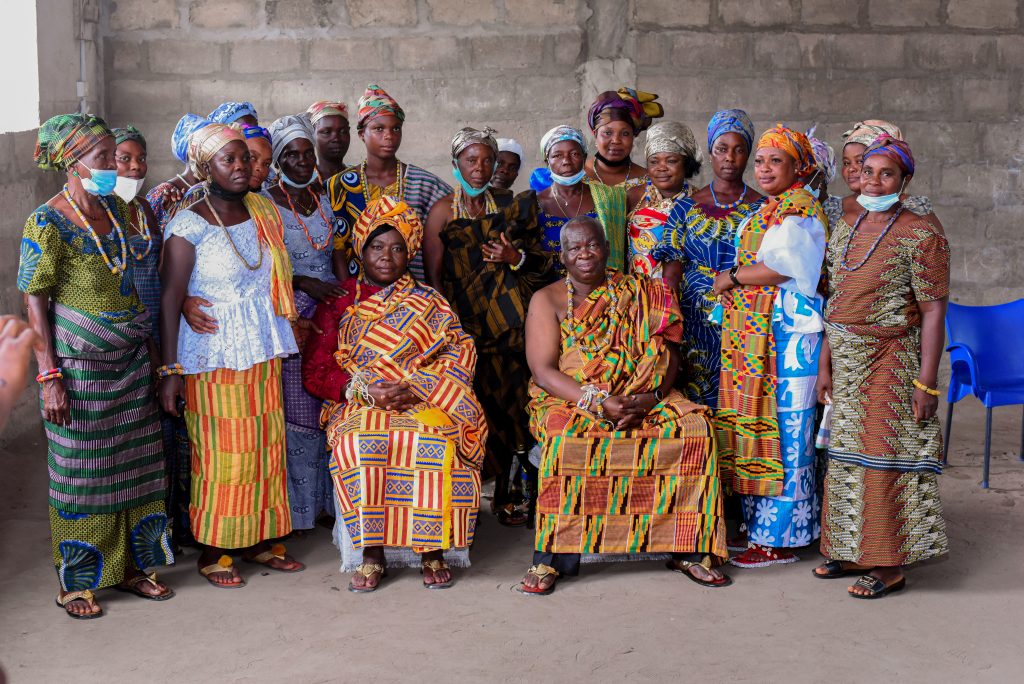
The project is effective in large part because it focuses on equipping local leaders to work together to make change happen. It may not be as dramatic as Moses striking a rock, but the community’s work is no less a sign of God working through individuals and communities to help them live and thrive. Torgbui Agbeve’s story of begging at the river also reflects what we know about God’s provision of water. Often there is enough to go around but access is denied or restricted to a few.
That may be what connects the two parts of Psalm 95. Trusting in God’s promise doesn’t mean praying harder or being more obedient; it means knowing that God, who created the sea, the land and the mountains, creates abundantly, blessing the world with the resources we need to live. It means knowing that the same God will equip the leaders that communities need to thrive.
Working toward the promised future of a time when we “will hunger no more and thirst no more” (Revelation 7:16) does not necessarily mean praying for a miracle to come but rather bearing witness to — and investing in — the miraculous ways God is already working through leaders and communities to bring that promise to life.
REFLECTION QUESTIONS
What does it mean to trust in God? When does that seem easy? When does it seem difficult?
How can faith in God the Creator shape responses to hunger, poverty or water scarcity today?
In what ways does your congregation equip new leaders to meet emerging needs?
What is the difference between abundance and scarcity? How might focusing on abundance change how we view ourselves, our world and God?
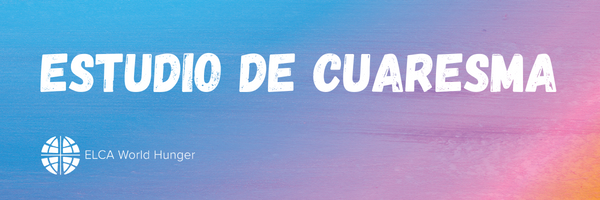
Sesión 3 — Salmo 95
“Porque el Señor es el gran Dios, el gran Rey sobre todos los dioses”. —Salmo 95:3
Quitémonos esto de en medio: el Salmo 95 es un salmo extraño. De hecho, es tan extraño, que fue difícil elegir un solo versículo para usarlo como epigrama en esta sesión. Sin embargo, incluso de sus palabras más desconcertantes podríamos obtener ideas que nos ayuden a entender mejor la obra de Dios en el mundo.
En The Social Visions of the Hebrew Bible: A Theological Introduction [Las visiones sociales de la biblia hebrea: Una introducción teológica] (Louisville: Westminster John Knox, 2000), J. David Pleins dice cuántos de los salmos, incluido el Salmo 95, parecen haber sido utilizados como partes de la liturgia durante la adoración y las fiestas. Este salmo, en particular, parece ser el primero de una serie (95-99), agrupados como “salmos de Dios como rey”. Cada uno ofrece una sublime alabanza a Dios, a menudo en un lenguaje que se habría utilizado para alabar a un rey humano.
El Salmo 95 comienza con alabanza a Dios como el creador de los “abismos de la tierra… los montes… el mar… y la tierra firme” (versículos 4-5). El salmista llama al pueblo diciendo “postrémonos reverentes, doblemos la rodilla” ante el Señor (versículo 6). Podríamos imaginar que la primera mitad del salmo se usa para llamar al pueblo a una ceremonia de adoración que celebra la obra de Dios el Creador y la majestad de Dios el Rey.
Lo desconcertante del salmo es que, justo después de estos versículos, su tono cambia abruptamente. Después de este llamado jubiloso a adorar al Rey Creador, la voz y el tema cambian. Después del versículo 8, el orador ya no es el salmista sino Dios, el tono no es de celebración y alabanza, sino de castigo y amenaza. Dios dice, “no endurezcan el corazón”, o, como les sucedió a sus antepasados que estuvieron antes que ustedes, “jamás entrarán en mi reposo” (versículos 8, 11). El cambio es tan abrupto, que muchos eruditos creen que el salmo consiste en dos trozos diferentes (versículos 1-7 y 8-11) que fueron combinados. La diferencia es tan marcada, que casi no se puede discernir un solo tema en todo el salmo.
Independientemente de la razón por la que pudieron haberse juntado estos dos trozos, algunas de las referencias del salmo lo vinculan tanto a Escrituras Hebreas anteriores como a Escrituras cristianas posteriores, como Hebreos 3:1-4:11. Uno de los vínculos más estrechos es su mención del incidente en Meribá o Masá, donde, según relata el salmo, “cuarenta años [Dios] estuv[o] enojado con aquella generación, y dij[o]: ‘Son un pueblo mal encaminado que no reconoce mis senderos’ (versículo 10).
Entonces, ¿qué pasó allí?
La historia de Meribá o Masá se narra en dos lugares en la Biblia: Éxodo 17 y Números 20. Moisés había sacado al pueblo de la esclavitud en Egipto. En los primeros meses llegaron al desierto de Sin (Éxodo 17:1) o Zin (Números 20:1), que estaba entre Elim y el Monte Sinaí. De ahí, viajan y acampan por etapas. Al llegar a cierto sitio (los relatos de Éxodo y Números difieren), el pueblo confronta a Moisés y Aarón. Han estado caminando en el desierto durante semanas. Están cansados y hambrientos, y ahora no hay agua. “—¿Para qué nos sacaste de Egipto? —reclamaban—. ¿Sólo para matarnos de sed a nosotros, a nuestros hijos y a nuestro ganado?”, se quejan ante Moisés (Éxodo 17:3). Moisés le suplica a Dios, quien le instruye que vaya por delante del pueblo con algunos de los ancianos de la comunidad, y que con su vara golpee una roca, de la cual fluirá agua.
Los hebreos en el desierto sabían entonces lo que sabemos hoy: sin agua, no hay vida, ya sea que fuesen esclavos o libres. Podemos imaginar la desesperación y frustración de ellos, tal vez incluso su ira. ¿A qué nueva “vida” los llevan, sin comida ni agua?
La escasez de agua afecta casi todo aspecto de la vida de una comunidad. Sin agua no se pueden cultivar alimentos adecuados. Sin agua los alimentos no se pueden lavar ni manipular de manera segura, por lo que existe un mayor riesgo de enfermedades. Sin agua potable cercana, las personas —generalmente las mujeres y niñas— deben viajar kilómetros para obtener el agua que necesitan cada día. Sin agua aumenta el peligro de conflictos violentos en lo que las personas pelean por este recurso escaso. Los riesgos de hambre, pobreza, enfermedades, conflicto y muerte aumentan cuando las personas no tienen acceso al agua que necesitan para vivir. Esa es una de las razones por las que una parte fundamental del trabajo que apoya ELCA World Hunger es ayudar a los vecinos a tener acceso a agua limpia y potable. No podemos acabar con el hambre sin ella. La queja de los hebreos no es infundada.
Sin embargo, desde el libro de Éxodo, al Salmo 95, al libro de Hebreos, el incidente se usa como un ejemplo más de desobediencia y falta de fe. Incluso los dos nombres que se le dan al lugar, Meribá y Masá, reflejan esto. “Meribá” significa “prueba”; “Masá” significa “pelea”. Los nombres marcan el lugar donde el pueblo probó a Dios y peleó con Dios.
Con frecuencia este tipo de historia bíblica se usa para alegar que debemos “tener más fe”, confiar más plenamente en Dios u orar más fervientemente. La fe y la oración son importantes, pero ninguna de las dos va a hacer salir agua de una roca. Ojalá fuera de otra manera, pero la oración ni siquiera hizo salir agua de la roca para Moisés.
Ese es el aspecto crucial de la historia. Sería absurdo creer que ninguno de los hebreos oró por agua antes de quejarse ante Moisés y Aarón. Cualquiera que haya sido devorado por la sed o haya visto a un ser querido sufrir lo mismo sabe que las oraciones por agua no habrían estado lejos de los corazones y las lenguas del pueblo. Lo que la historia revela no es que Dios proveerá un milagro de agua si oramos lo suficientemente fuerte, sino que Dios equipará a los líderes para ayudar a las personas a acceder los recursos que necesitan para vivir. En respuesta a la necesidad del pueblo, Dios ordenó a Moisés que reuniera un grupo de ancianos y los guiara a un lugar donde fluiría el agua. Dios incluso equipó a Moisés con el instrumento correcto (una vara) y las instrucciones (“golpear la roca”) para que esto sucediera. La lección no es simplemente confiar en que el agua fluirá de una piedra, sino saber que, primero, Dios ha provisto suficientes recursos a través de la creación para satisfacer nuestras necesidades y, segundo, Dios hace milagros a través del equipamiento de líderes para acceder a esos recursos.
En lo que al agua se refiere, no tenemos que volver a los antiguos hebreos para ver esta dinámica en funcionamiento. En Ghana, la escasez de agua amenaza la vida y los medios de subsistencia de casi el 90% de la población. Incluso en las zonas urbanas, más de la mitad de la población carece de acceso a agua limpia y potable. En países en desarrollo como Ghana, casi el 80% de las enfermedades y muertes son causadas por enfermedades transmitidas por el agua, que a su vez son impulsadas por personas que necesitan depender de fuentes de agua insalubres. Torgbui Agbeve, un cacique de la comunidad que participa en un proyecto de Good News Theological Seminary [Seminario Teológico Buenas Nuevas] en Ghana, relata: “Yo iba al río Todzie con algunas personas de mi pueblo para rogarles que nos permitieran el acceso a su río, pero se negaban”.
Con el apoyo de ELCA World Hunger, el seminario está trabajando con líderes comunitarios como Torgbui para facilitar el acceso a agua potable. El trabajo es parte de un proyecto más amplio que también crea empleos mediante una industria artesanal local que produce detergente a base de plantas y otros productos. Desde que comenzó el proyecto, más de 1,000 personas de más de 80 comunidades han participado, y el seminario planea expandir la obra aun a más comunidades.
El proyecto es efectivo en gran parte porque se concentra en equipar a los líderes locales a trabajar juntos para que ocurra el cambio. Puede que no sea tan dramático como cuando Moisés golpeó la roca, pero el trabajo de la comunidad no es menos signo de que Dios trabaja a través de individuos y comunidades con el fin de ayudarlos a vivir y prosperar. La historia que relata Torgbui Agbeve de rogar en el río también refleja lo que sabemos de la provisión de agua por parte de Dios. A menudo hay suficiente para todos, pero se les niega o restringe a algunos el acceso a ella.
Eso puede ser lo que conecta las dos partes del Salmo 95. Confiar en la promesa de Dios no significa que hay que orar más fuerte o ser más obediente; significa saber que Dios, quien creó el mar, la tierra y los montes, crea en abundancia, bendiciendo al mundo con los recursos que necesitamos para vivir. Significa saber que el mismo Dios equipará a los líderes con lo que las comunidades necesitan para prosperar.
Trabajamos por un tiempo en el que “ya no sufrirán hambre ni sed”. Trabajar por el futuro prometido de un tiempo en el que “ya no sufrir[emos] hambre ni sed” (Apocalipsis 7:16) no significa necesariamente orar para que venga un milagro, sino más bien dar testimonio de las formas milagrosas en que Dios ya está trabajando a través de líderes y comunidades para hacer realidad esa promesa, e invertir en ellas.
PREGUNTAS DE REFLEXIÓN
¿Qué significa confiar en Dios? ¿Cuándo parece fácil? ¿Cuándo parece difícil?
¿Cómo puede la fe en Dios el Creador dar forma a las respuestas al hambre, la pobreza o la escasez de agua hoy?
¿De qué manera su congregación equipa a los nuevos líderes para satisfacer las necesidades que surgen?
¿Cuál es la diferencia entre abundancia y escasez? ¿Cómo podría el concentrarse en la abundancia cambiar la forma en que nos vemos a nosotros mismos, y en que vemos a nuestro mundo y a Dios?



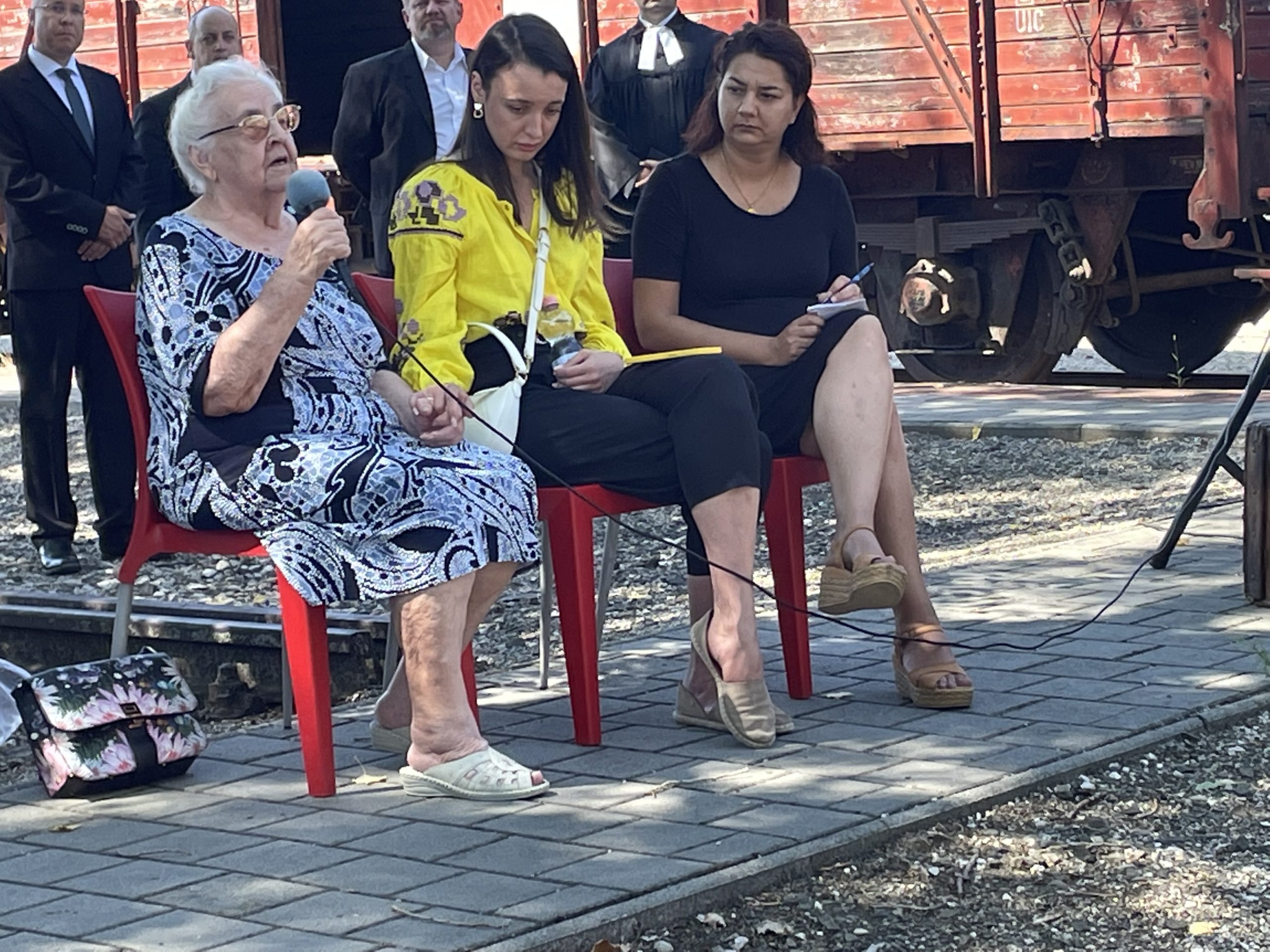
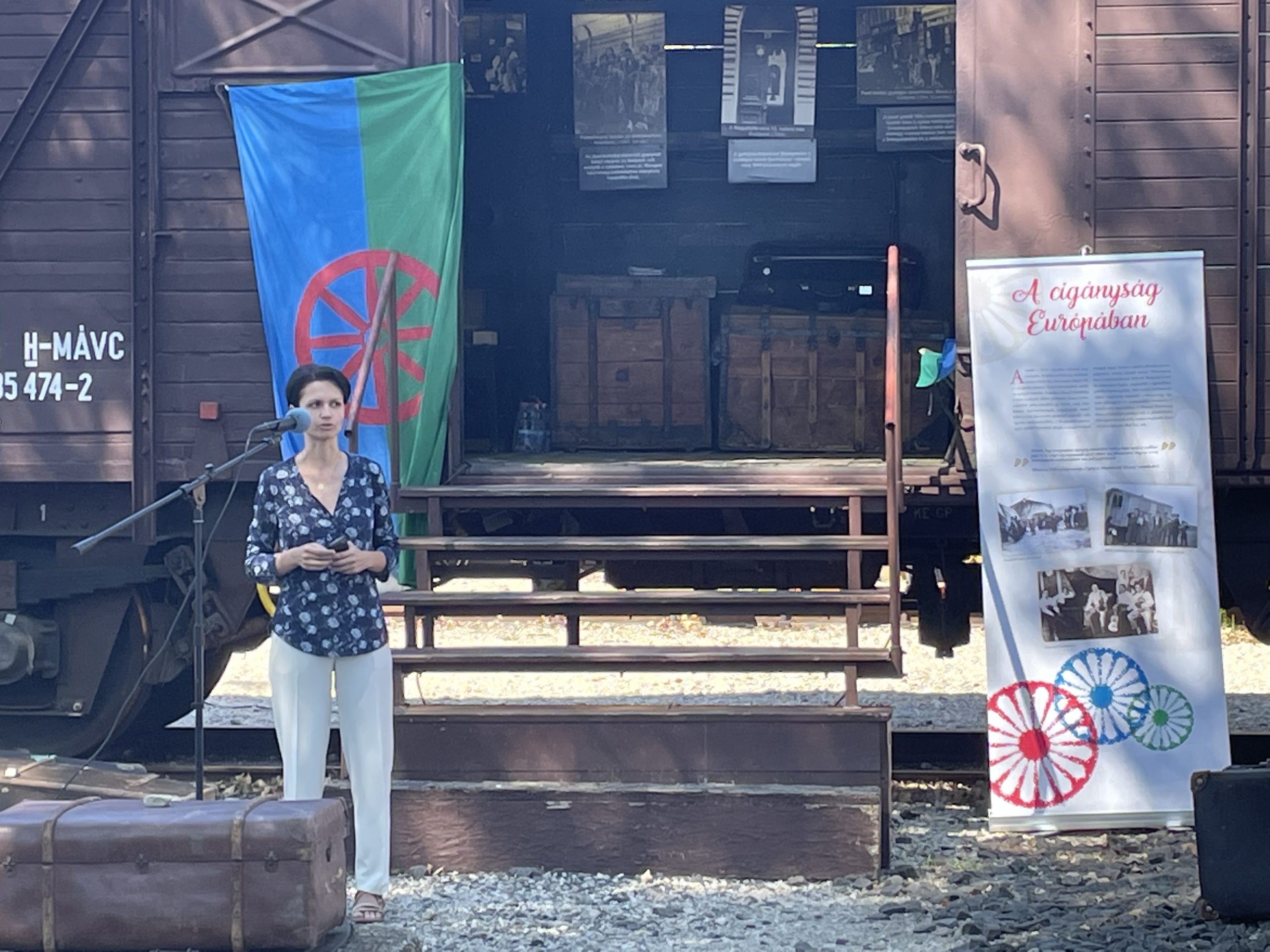
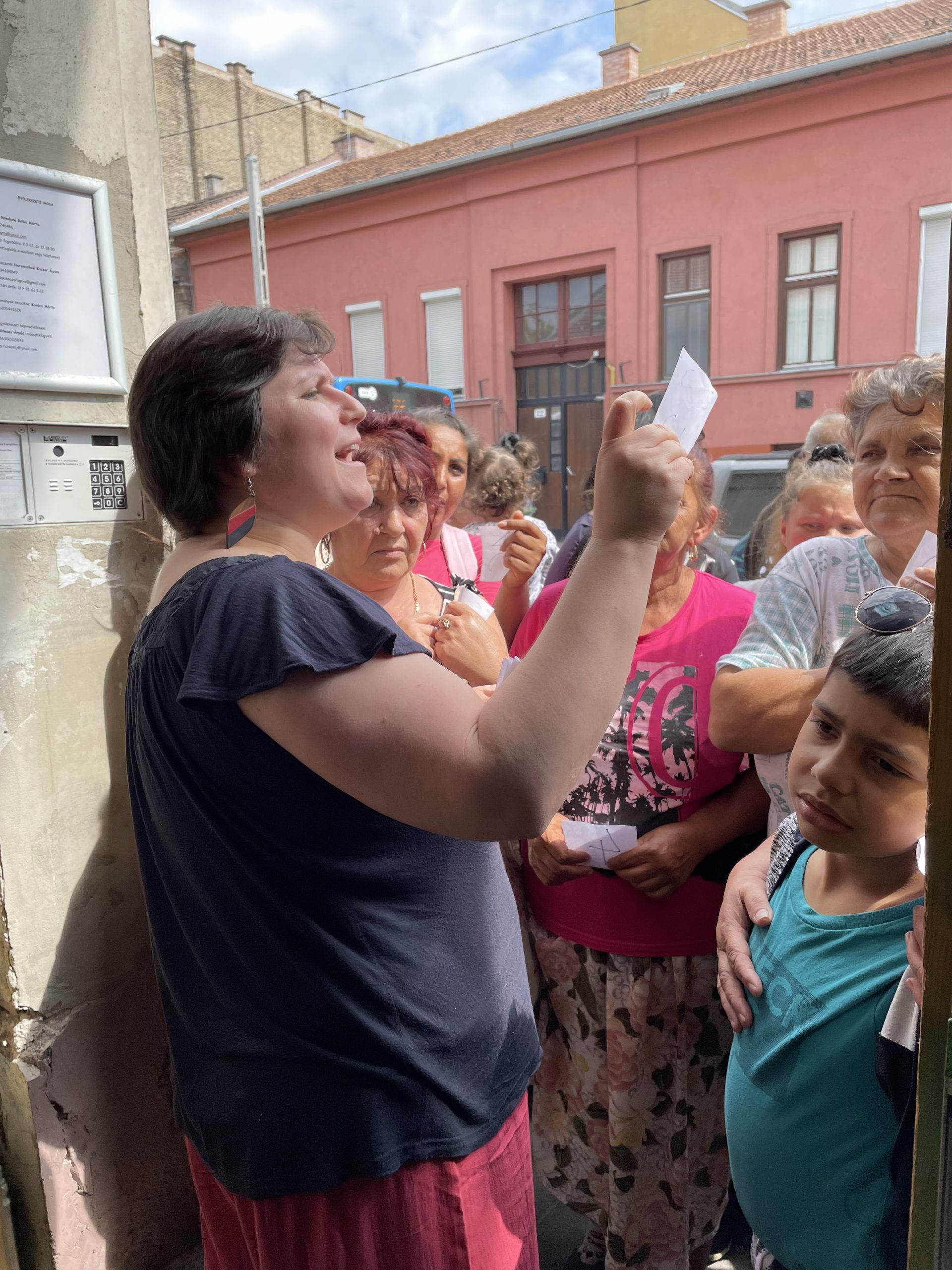

 A book review by Rev. Peter Heide on “The Pretty One: On Life, Pop Culture, and Other Reasons to Fall in Love with Me” by Keah Brown
A book review by Rev. Peter Heide on “The Pretty One: On Life, Pop Culture, and Other Reasons to Fall in Love with Me” by Keah Brown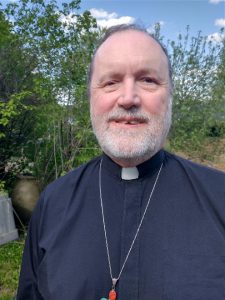
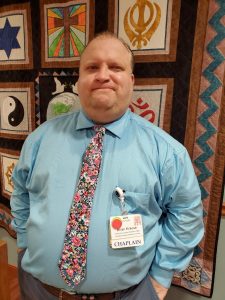
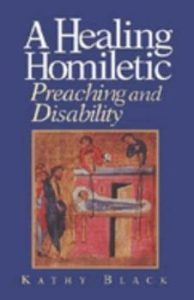 I commend to you the book
I commend to you the book 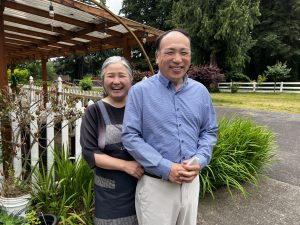 With a grant from ELCA World Hunger, Light of Grace started a new program through Dasom Bi-Cultural Cooperation to provide space and support for fellow Korean-American immigrants three days a week. Tuesday through Thursday, program participants have an opportunity to cook Korean food, eat a healthy meal, create goods to sell or keep, and take advantage of interpretation services, social engagement and emotional support.
With a grant from ELCA World Hunger, Light of Grace started a new program through Dasom Bi-Cultural Cooperation to provide space and support for fellow Korean-American immigrants three days a week. Tuesday through Thursday, program participants have an opportunity to cook Korean food, eat a healthy meal, create goods to sell or keep, and take advantage of interpretation services, social engagement and emotional support.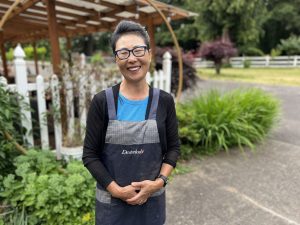 “I always had heard that the Lutherans excel at helping churches in need, but after having experienced it firsthand, I’m just really so happy and proud to be a member of this church.”
“I always had heard that the Lutherans excel at helping churches in need, but after having experienced it firsthand, I’m just really so happy and proud to be a member of this church.”